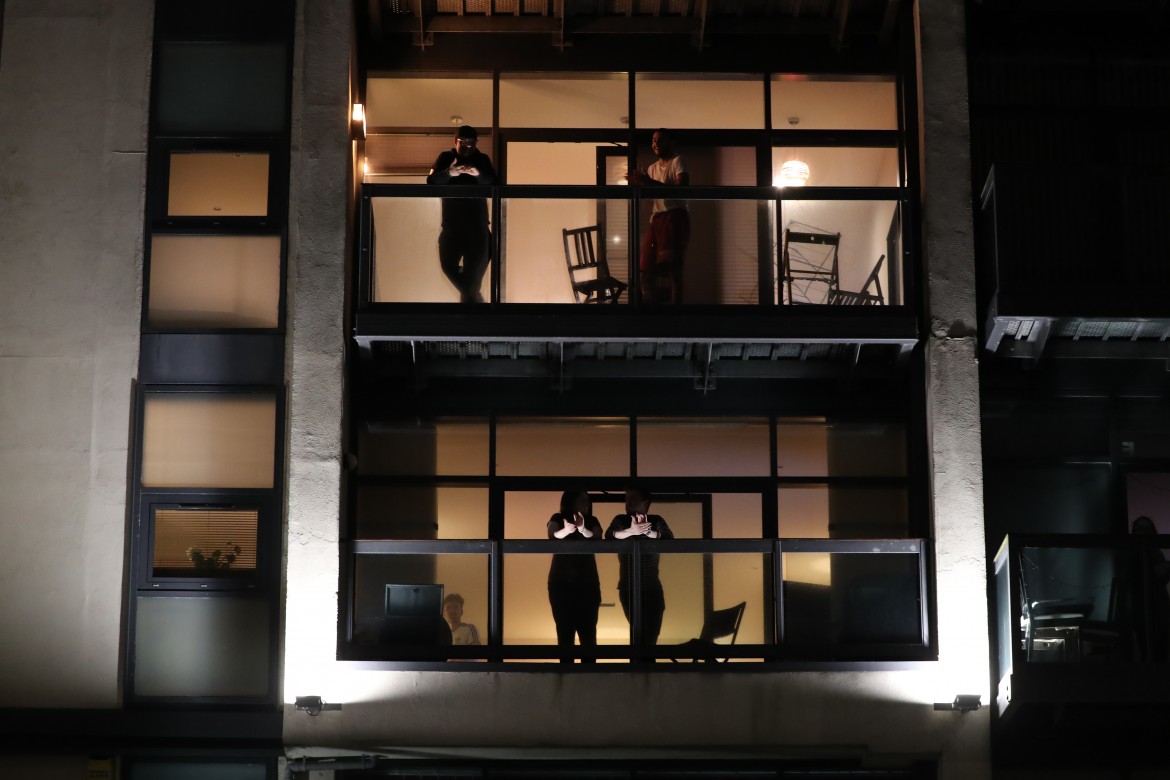Commentary
We’re facing two pandemics – one is psychological
We may be protecting ourselves from a terrible infection by self-quarantining at home. But the longer we spend in isolation, the greater the risk to our mental health. No one is immune.

It’s not just a momentous event, marking a “before” and “after” in history. It is also a collective shock that is affecting our bodies. We aren’t just following the events on our screens—we are suffering their effects every day. The killer virus, invisible and incomprehensible, which makes you unable to breathe and causes a horrible death, is affecting life in a thousand ways.
The initial panic, which we exorcised on our balconies, has been replaced by a sense of sadness, astonishment and bitter resignation. With decree after decree, everything slowed down, then stopped altogether. This has never happened before: an entire nation under house arrest. And that only applies for the “privileged” majority, compared to all those who are forced to work even in these dramatic circumstances: doctors, nurses, supermarket workers, riders, drivers, truckers, etc.
As we begin to address the issue of the economic recession which now lies before us, we keep debating the most political aspects of this crisis, i.e. the seriousness of the state of emergency and the dangerousness of the measures taken. People’s margin of movement is progressively removed by promising, or rather guaranteeing, immunization for the citizen-patient, who, more or less willingly, submits to all the health and hygiene rules. This is how this new form of immunitary democracy works.
But for how long? And with what effects? There is also another emergency that has hardly been mentioned so far: the psychological emergency. As if it were a taboo, a topic to be hidden away, it has remained on the sidelines of the public debate. On the subject of diagnostic tests, and more generally of treatment, a number of experts, virologists, doctors and ministerial technocrats have already admitted the flaws in the healthcare available in the territory, which has been left almost exclusively in the hands of general practitioners. And we know the price we’re paying for that. The problem, however, is bigger than just the body.
The risk brought on by the mass house arrests, something never experienced before, is that of an enormous psychological implosion that will rip through the veil of the ghostly silence of these days. The lives of many people have been radically altered from one day to the other. It’s as if nothingness is swallowing them up. Work, everyday activities, their frenetic routine—everything is suddenly suspended. Human relationships are paralyzed.
Friends, relatives, acquaintances are nothing but distant voices, faces filtered through screens. Of course, it’s a good thing we have these technical means at our disposal, without which isolation would be even more burdensome and unbearable.
It must be recognized that the lethal effects of the coronavirus are unfortunately not limited to the deaths, but also include the imposition of distance, with all the consequences it brings: sadness, anger, the sense of helplessness, frustration, loneliness, insomnia, anguish, depression. There is a psychological epidemic as well—and it is one of unthinkable proportions.
And this doesn’t mean that the consequences of segregation are only afflicting those who are struggling with psychological problems. The situations can be enormously varied. For instance, a large family forced into a confined space, and a single person made into a prisoner of their single room; or a student who is missing the university classroom, or an elderly person who is permanently cut off from the world. Not everyone has the means to deal with the narrowness of space, to process their anguish.
And that should come as no surprise in a country that has invested so little in culture that it has led its citizens to lose the good habit of reading. Together with dropping off food, one should also drop off a book. And perhaps the bookstores should re-open.
Although the national health system is literally overwhelmed right now, it will still have to pay close attention to the effects of relational distance, before violence ends up reaping its victims—starting with women and those who are weakest. What about psychiatric consultations? What about cultural initiatives, aimed at a mass audience?
In psychiatry, Italy has the great tradition of Dr. Franco Basaglia, and the time has come to draw upon it.
One remains immune only if one accepts to be segregated: this is the psychological epidemic of the coronavirus. It’s a viral shock that could prove devastating if it is not dealt with in the spirit of solidarity. For us, the newly segregated, perhaps this will be a chance to reflect on the plight of those who are prisoners in jails.
Originally published at https://ilmanifesto.it/il-rischio-adesso-e-la-pandemia-della-mente/ on 2020-03-29
